Julianne Moore's 10 Best Movies
Categories: Celebrities | Cinema
By Pictolic https://pictolic.com/article/julianne-moore39s-10-best-movies.htmlJulianne Moore was born on December 3, 1960, an actress with unique talent and deep emotional expressiveness who has won the hearts of millions of viewers around the world. In celebration of her birthday, here's a selection of her top ten films, showcasing the diversity of her acting and the uniqueness of each role, from light comedies to deep dramatic characters.
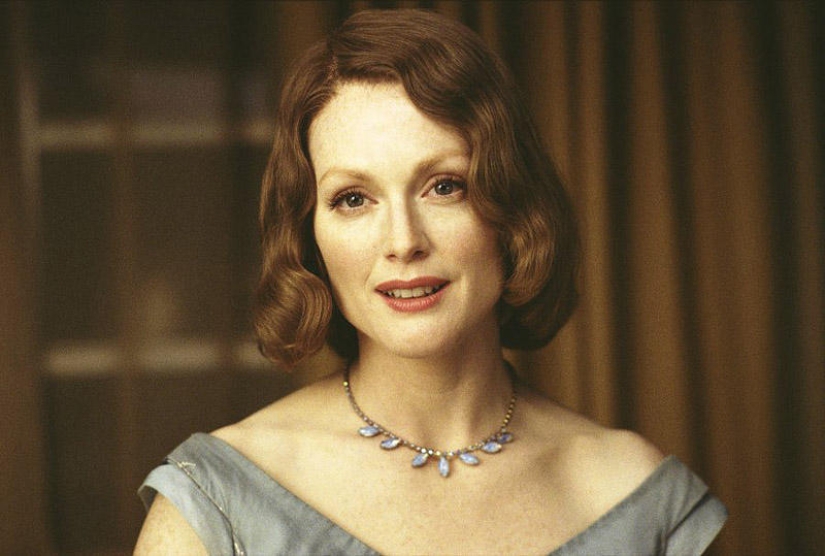
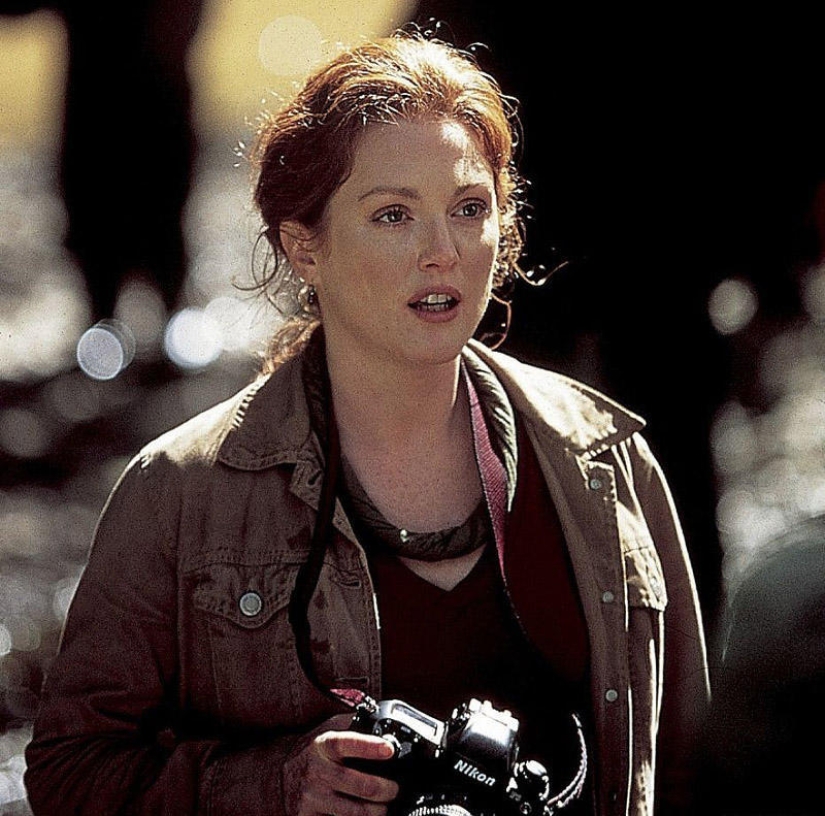
In the film Jurassic Park: The Lost World (1997), the sequel to Steven Spielberg's cult sci-fi thriller, Julianne Moore played one of the main roles - Dr. Sarah Harding. In this exciting sequel to the story of dinosaurs reborn, she appears as a brave and intelligent scientist trying to survive in extreme conditions on an island inhabited by ancient predators.
The film may not have been as famous as its predecessor (Jurassic Park won three Oscars), but the 1997 blockbuster helped establish Moore in Hollywood. Steven Spielberg initially offered the role of Sarah Harding to French actress Juliette Binoche, but when she refused, the role went to Julianne Moore.
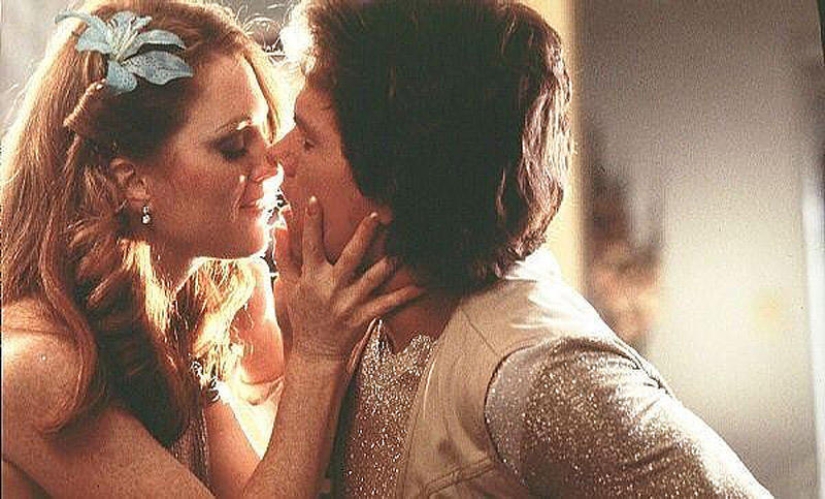
Moore received her first Oscar nomination in the Best Supporting Actress category for Boogie Nights. A powerful and provocative drama about the 1970s porn industry, the film featured Moore as a seasoned porn star and mentoring mother to the young protagonist. Infused with deep emotion and a complex personal story, this portrayal showcased Moore's acting prowess and her ability to create multi-faceted, realistic characters.
The film was written and directed by Paul Thomas Anderson. After considering Patricia Arquette, Melanie Griffith, Meg Ryan and Brooke Shields for the role, the director finally cast Julianne Moore in the role of porn star Amber Waves. This film not only strengthened her reputation as a talented actress capable of daring and unconventional roles, but also brought her widespread recognition. Boogie Nights became a key moment in her career, opening the door for the actress to larger and more significant projects in cinema.
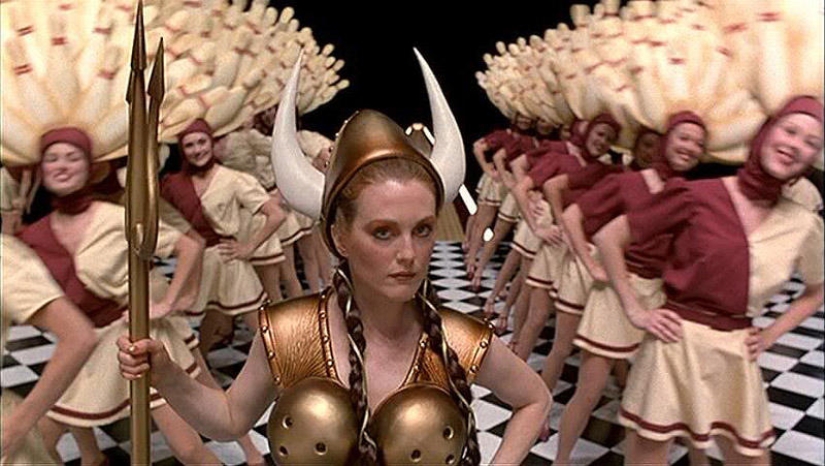
In the Coen brothers' cult film The Big Lebowski (1998), Julianne Moore gave a memorable performance as Maude Lebowski, an eccentric artist and a key character in the intriguing plot. Her character, personifying the avant-garde spirit and unconventional approach to art, brings a special zest to the film. The role showed Moore as a skilled actress, able to fit seamlessly into the absurd and surreal world of the Coen brothers.
It took Moore only two weeks to film the film. But participation in “The Big Lebowski” became an important stage in the career of Julianne Moore, adding a bright and extraordinary image to her filmography. The film quickly gained cult status, and Moore's work in it was praised by both critics and audiences.
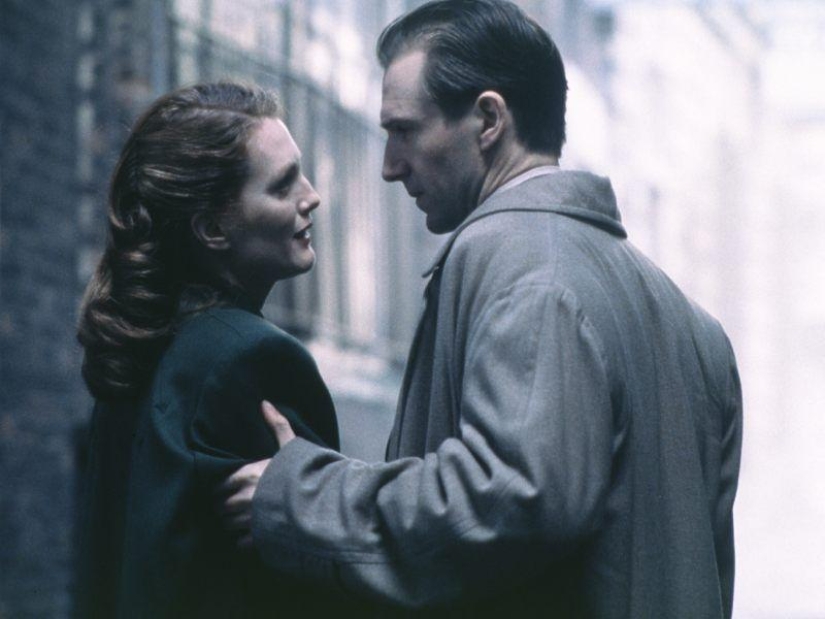
In The End of the Affair (1999), an adaptation of Graham Greene's novel of the same name, Julianne Moore played Sarah, a complex and multifaceted character caught in a complicated love triangle during World War II. Her heroine is a woman torn between love and obligations, between passion and moral principles. Moore conveys her character's deep emotional experiences with brilliant conviction, making her portrayal memorable and touching.
Miranda Richardson and Kristin Scott Thomas were initially considered for the role of Sarah Miles, but Julianne Moore wanted her so badly that she wrote to director Neil Jordan asking him to give her the role. It worked. Her role in this film brought her a second Oscar nomination, this time in the “Best Actress” category. The film's script is based on a 1951 novel. It also stars Ralph Fiennes and Stephen Rea.
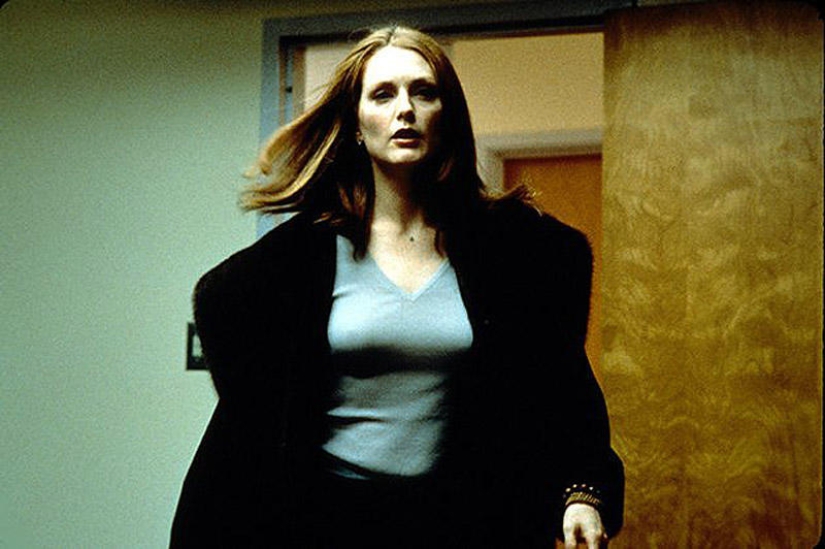
While editing Boogie Nights, director Paul Thomas Anderson began working on Magnolia. He wrote the role of Linda Partridge specifically for Julianne Moore. Julianne Moore plays Linda Partidge, a woman going through a deep personal crisis and struggling with guilt and her own past. This film, which is a complex mosaic of human destinies and experiences, allowed Moore to show the depth and versatility of her acting talent. Her character, one of many in this multi-faceted drama, stands out for the sincerity of her emotions and the realism of her experiences, making her one of the most memorable figures in the film.
The role in Magnolia was a significant achievement in the career of Julianne Moore. This film, which received high praise from critics and audiences, once again confirmed her status as one of the most talented actresses of her generation. The film received three Oscar nominations, and the project significantly expanded Moore's acting range, demonstrating her ability to create deep, emotionally rich characters.
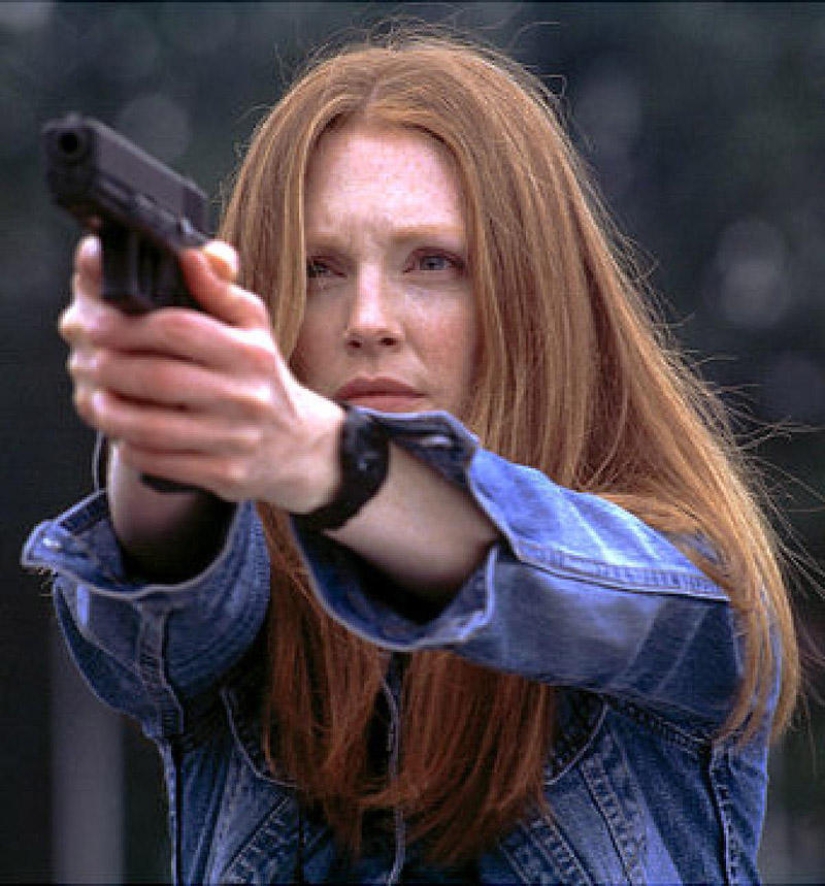
When Anthony Hopkins confirmed his participation in Hannibal, the sequel to the famous story about Dr. Lector, all eyes were on Jodie Foster. But she refused. The competition was intense, and Julianne Moore beat out many, including Gillian Anderson, Cate Blanchett and Hilary Swank, to finally get the role of Clarice Starling. Critics said that the first part was a much better success, but, nevertheless, the film grossed more than $350 million worldwide.
Moore brings her own unique charisma and depth to the character of Starling, portraying her as a strong, intelligent and complex individual who once again finds herself drawn into a dangerous game with Lecter. The role in Hannibal was an important milestone in Julianne Moore's career, despite mixed reviews from critics about the film as a whole. Her interpretation of the character of Clarice Starling allowed audiences to see a familiar character from a new angle and helped cement her status as a leading Hollywood actress.

In The Hours (2002), an adaptation of Michael Cunningham's novel, Julianne Moore played the role of Laura Brown, a 1950s housewife who struggles with depression and her own identity. In this multi-faceted dramatic film, intertwining the stories of three women from different eras, Moore perfectly conveys the inner world of her character, her suffering and desire to understand herself. Her deep and emotional performance makes the image of Laura one of the most striking and memorable in the film.
Even though The Hour was starring Oscar-winner Nicole Kidman (and her fake nose), Julianne Moore's performance also earned her an Oscar nomination for supporting actress. Moore's character was originally played by an older actress, Laura Brown, but director Stephen Daldry did not like the result. Therefore, Julianne Moore was invited, who was “aged” with the help of makeup.
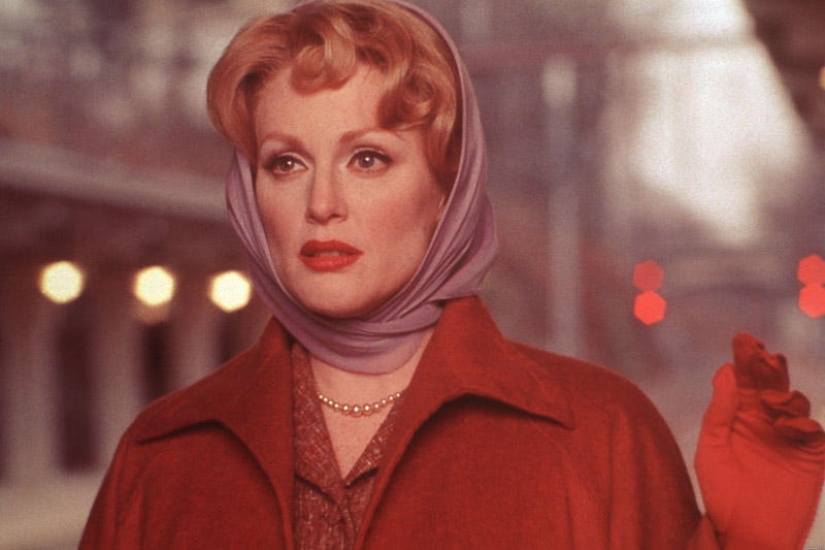
In Far from Heaven (2002), directed by Todd Haynes, Julianne Moore played Katie Whitaker, a 1950s housewife whose idyllic life is upended by family and social drama. In this film, Moore recreated the image of a woman faced with a difficult choice between personal happiness and social pressure. Her character, who battles racism, sexism and homophobia, embodied the complexities of life in mid-20th century America. Moore's masterful acting allowed her to deeply reveal Katie's inner world and experiences.
Writer and director Todd Haynes shot Far From Heaven in a '50s style, using a distinct color palette and camera angles from the era. The role of Katie Whitaker, a housewife whose perfect life begins to fall apart, earned Julianne Moore her fourth Oscar nomination. Moore was pregnant with her second child during filming.
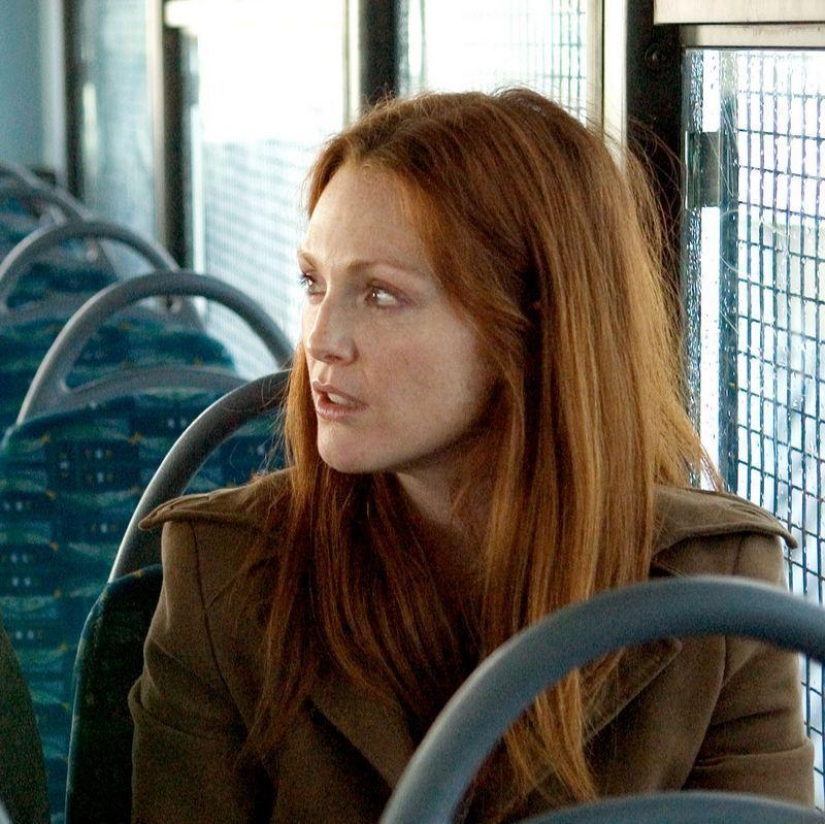
In Children of Men (2006), directed by Alfonso Cuarón, Julianne Moore played the key role of Julian Taylor, an activist fighting for the rights of refugees in a dystopian future where humanity is faced with infertility. In this dystopian thriller, full of socio-political nuances, Moore's character becomes a central figure in the plot related to the struggle for human survival. Her powerful, emotionally rich performance gave the film special intensity and drama.
For the role of Julian Taylor, director Alfonso Cuaron was looking for an actress who would have "believable leadership, intelligence and independence." He received all this from Moore, who played the ex-wife of Clive Owen's hero. In the film you can see graffiti of the famous Banksy.
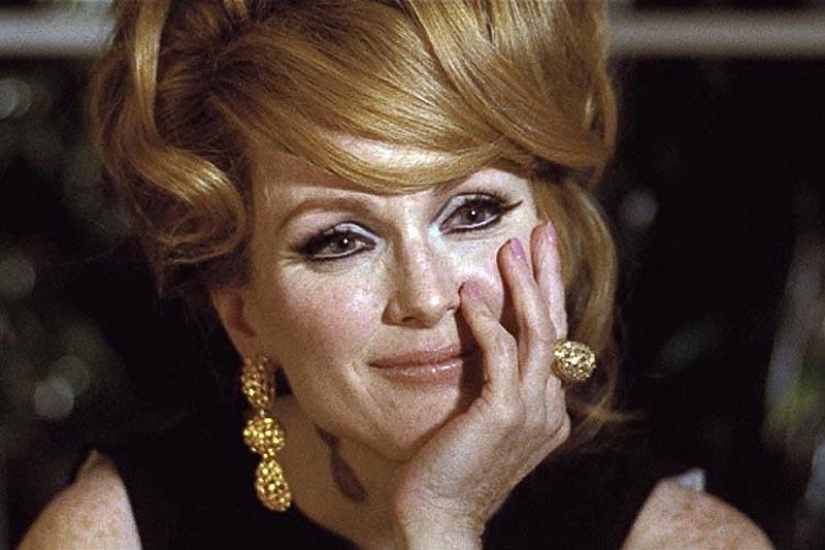
In the film A Single Man (2009), the debut directorial project of the famous fashion designer Tom Ford, Julianne Moore played the character of Charlie, a close friend of the main character, Professor George Falconer, played by Colin Firth. Her heroine, full of sensuality and tragedy, is revealed through her complex relationship with Faulconer, demonstrating a subtle understanding of human emotions and relationships.
The film's script is based on the novel by Christopher Isherwood. The role in A Single Man was a significant achievement for Julianne Moore. The actress received a Golden Globe nomination. A Single Man not only cemented Moore's status as one of the leading actresses of her time, but also demonstrated her ability to work in intimate, psychologically charged drama.
Recent articles

It's high time to admit that this whole hipster idea has gone too far. The concept has become so popular that even restaurants have ...

There is a perception that people only use 10% of their brain potential. But the heroes of our review, apparently, found a way to ...

New Year's is a time to surprise and delight loved ones not only with gifts but also with a unique presentation of the holiday ...